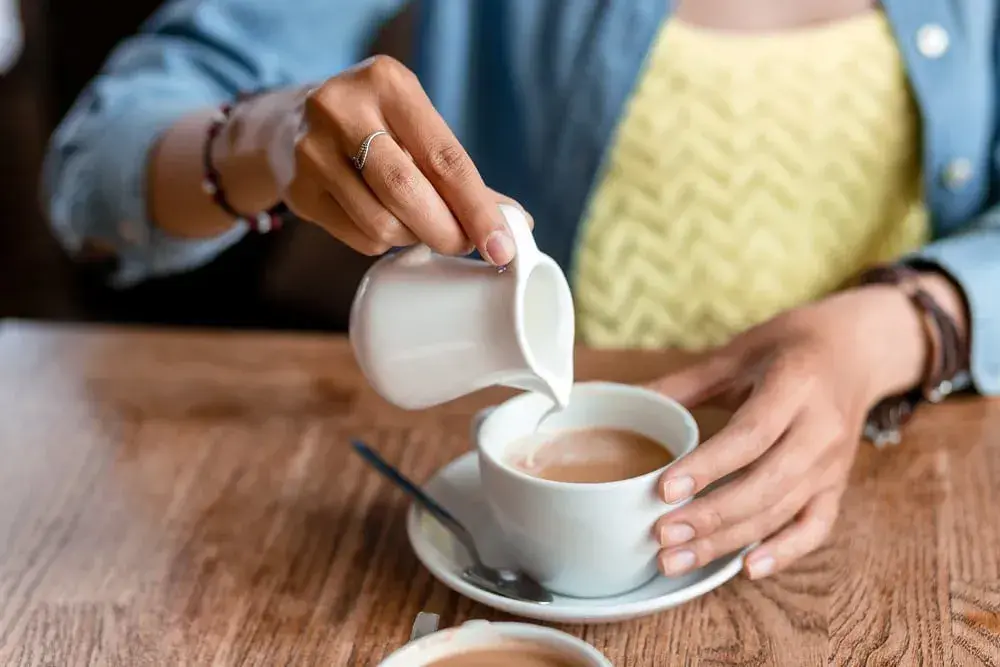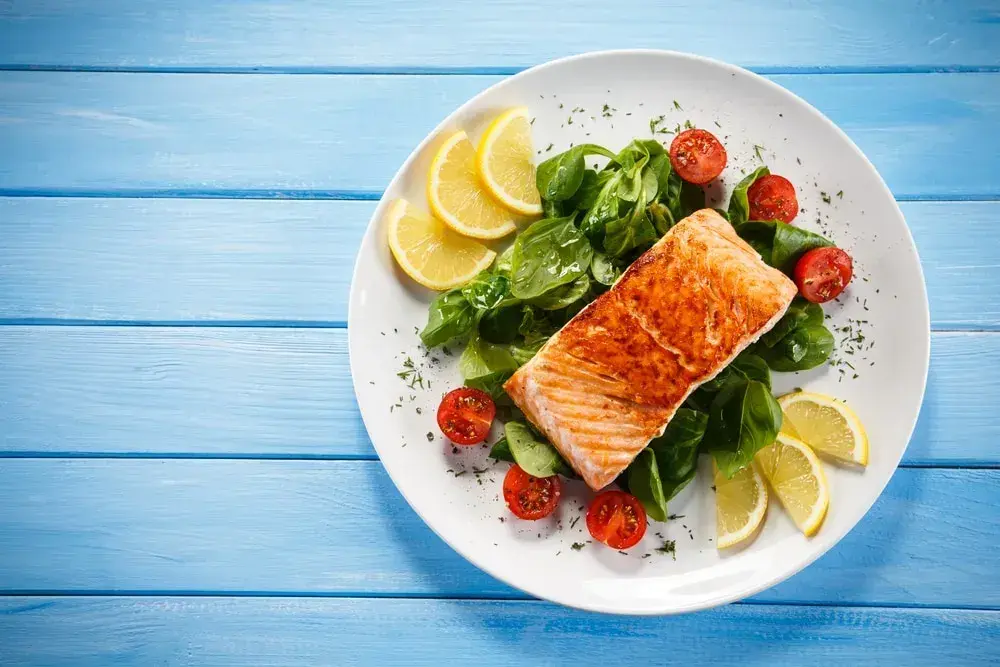5 min read
10 Foods That Can Cause A Weight-loss Plateau
Garcia Weight Loss
:
Aug 13, 2018 12:00:00 AM

/assets/images/provider/photos/2579375.jpg)
Have you recently stopped making weight-loss progress? It could be your diet. Certain foods can cause a weight-loss plateau, even if you’ve otherwise been making healthy choices and exercising regularly. Many foods generally touted as healthier options — such as granola bars, diet soda, and rice cakes — could actually be stalling your weight-loss progress instead of helping you reach your goals. Fortunately, scaling back on these foods or avoiding them altogether can help you get back on track immediately.
Here’s what you need to know if you’ve hit a weight-loss plateau, along with 10 foods that may be preventing you from making gains.
Get our secrets to weight-loss success with our free e-book, Habits of Successful Weight Loss Patients.
What is a weight-loss plateau?
A weight-loss plateau is when you suddenly stop losing weight after a period of consistent weight loss. You may maintain your current weight without losing extra pounds, or you may even gain back pounds you recently lost. Weight-loss plateaus can be extremely frustrating, especially since they tend to happen when you’re already exercising regularly and practicing good nutrition.
What causes a weight-loss plateau?
A weight-loss plateau can happen to anyone for a number of different reasons. For instance, a weight loss plateau can happen if your workouts have stopped being challenging and your body is no longer burning enough calories to achieve fat loss. Certain types of foods can also contribute to a weight-loss plateau.
Are weight-loss plateaus normal?
Yes, weight loss plateaus are completely normal and can even happen to bodybuilders and athletes. The leaner you become, the more difficult it can be to lose the last of your excess weight. But making changes to your diet and fitness routine can usually help you overcome a weight-loss plateau or a stall.
How long can weight-loss plateaus last?
Weight-loss plateaus can last a few weeks or as long as several months if you’re not in tune with your body or aware of the changes you need to make to get back on track. The moment you recognize you’ve hit a weight-loss plateau, talk to your doctor immediately for help with developing an optimal nutrition and fitness plan that can help you push past it.
Can dehydration cause a weight-loss plateau?
Yes, dehydration can slow your metabolism and trigger food cravings, which can in turn lead to a weight-loss plateau. Drink plenty of water throughout the day and during your workouts to prevent dehydration from getting in the way of your weight loss.
How to break a weight-loss plateau
Changing up your exercise routine and taking a good look at your calorie intake are just a couple of ways to break a weight-loss plateau. Make sure you’re getting plenty of good sleep and drinking lots of water. If you’re drinking anything that contributes to dehydration — including soda, coffee, or alcohol — reduce your intake of these beverages and replace them with more water.
It may also be necessary to make some changes to your diet. The foods that helped you get this far may not be the same foods you ultimately need to reach your goal weight. If you’re eating or drinking any of these ten foods or beverages, it may be time to make some adjustments.
1. Coffee
Drinking more than five cups of coffee per day can lead to increased storage of belly fat and a higher risk of type two diabetes. Coffee can also lead to an imbalance in gut bacteria and cause bloating — especially in those who suffer from candida overgrowth. If you’re a heavy coffee drinker, limit your intake to fewer than five cups daily, and consider switching to green tea, which offers positive benefits for weight loss.
2. Salt
A diet high in sodium can cause water retention and bloating, and prevent you from slimming down. More than 75 percent of sodium in the average American’s diet comes from sodium in processed foods like boxed meals and canned soups. Many low-fat and fat-free meals are also high in sodium. Quit eating processed foods and stick to eating fresh, whole foods seasoned with Himalayan salt, which helps your body maintain good fluid balance.
3. Dairy
Most dairy products contain lactose — a milk sugar that spikes the body’s insulin levels. Dairy products are also highly acidic and can cause inflammation if you don’t eat enough alkaline foods to balance your gut’s acidity level. Reduce your intake of dairy products like cow’s milk, cheese, and butter, and eat more alkaline foods like leafy greens, non-starchy vegetables, and fruit.
4. Low-fat and fat-free foods
Processed foods labeled with words like “light,” “low-fat,” and “fat-free” are stripped of healthy fats and natural sugars, and packed with sodium and additives that try to make up for lost flavor. Sometimes sugar is replaced with high-fructose corn syrup, which can cause more weight gain than real, natural sugar. Stop consuming these fat-free foods and stick to eating foods that contain natural ingredients and no preservatives or additives.
5. Artificial sweeteners
Artificial sweeteners contain zero calories, which many interpret as meaning zero harm for their health. Artificial sweeteners may seem like healthy counterparts to regular sugar, but can negatively interfere with the way the body metabolizes sugar, leading to weight gain and overeating. Replace artificial sweeteners with natural sweeteners such as raw honey, stevia, and maple syrup.
6. Dried fruit
Dried fruits such as those found in trail mix may seem like healthy midday snacks but are often loaded with added sugar. While dried fruit may contain high amounts of fiber and antioxidants, you’re better off consuming fresh fruit to avoid excess sugar intake. If you insist on eating dried fruit in moderation, read the ingredients labels to make sure it contains real sugar only, and not any harmful additives or preservatives.
7. Dark chocolate
Dark chocolate offers countless benefits for your overall health when consumed in moderation. But eating dark chocolate brands that contain less than 70% cacao or that are loaded with excess sugar and additives may do more harm than good for your waistline. Limit yourself to just one to two squares of dark chocolate per day or every other day, and stick to brands that contain the highest amount of cacao possible with few additives.
8. Fruit juice
Many commercial fruit juices are highly processed, loaded with sugar, and lack fiber — meaning you won’t experience the same lasting feeling of fullness as you would when eating whole fruit. Plus, sugary fruit juices can cause weight gain and increase your risk of insulin resistance and type two diabetes. Swap out fruit juice for water to stay hydrated and to avoid hitting a weight-loss plateau.
9. Frozen meals
Many frozen meals are advertised as being healthy and low in fat and calories. However, frozen meals are typically highly processed and loaded with heavy amounts of sodium, which functions as a natural preservative to keep these foods fresh. Instead of stocking up on pre-made frozen meals from the grocery store, make extra portions of healthy meals you prepare at home and store them in the freezer.
10. Nuts
Nuts offer many health benefits in the way of vitamins, minerals, and other nutrients, but are also high enough in fat and calories to interfere with weight loss if you eat too many. Pay close attention to the amount of nuts you’re eating and limit your serving sizes to about one or two handfuls per day. Pecans and macadamia nuts tend to be the worst culprits, since these nuts offer the highest amount of fats and the lowest amount of protein.
A healthy weight-loss diet generally consists of a healthy balance of fruits, vegetables, leafy greens, organic meats, seeds, and fish. If you’ve hit a weight-loss plateau and aren’t sure whether certain foods in your diet are the root cause, talk to your doctor about developing a healthy meal plan that works best for you.
Want more weight-loss tips? Download our free e-book, Habits of Successful Weight Loss Patients, and learn the habits that have helped thousands of our patients transform their lives!



